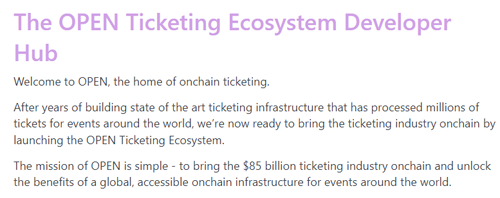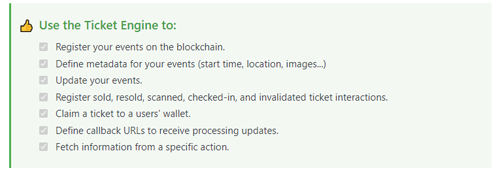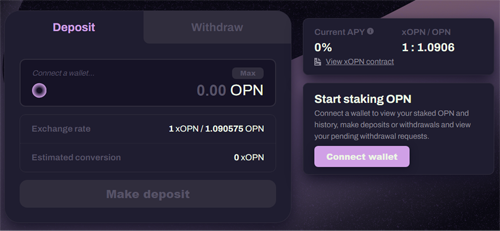$OPN Is Bringing The $85 billion Ticketing Industry On Chain
The OPEN Ticketing Ecosystem, powered by $OPN, represents a significant advancement in ticketing technology, integrating blockchain to bring efficiency and security to event ticketing.
The ecosystem utilizes a ‘Ticket Engine,’ a user-friendly HTTP API, enabling event organizers to create NFT tickets with ease, bypassing complex blockchain transactions.
At its core, the system offers a dual benefit: it works alongside existing ticketing platforms, acting as a ‘digital twin’ to traditional tickets, while enabling users to enjoy the perks of blockchain ticketing without added operational risk.
Event organizers can register events, define and update event metadata, handle ticket sales and resales, manage check-ins, and validate ticket interactions through this engine.
With a focus on keeping blockchain interactions minimal, only essential information is stored on-chain, ensuring a cost-effective and lean system. The OPEN Ticketing Ecosystem, with its underlying digital structure, can store detailed event information, tickets, and associated metadata efficiently. The asynchronous processing and optional callback URLs ensure smooth operations without compromising on performance or reliability.
This innovative approach not only opens doors to new possibilities in the ticketing industry but also aligns with the growing trend of utilizing digital solutions for improved customer experiences and operational excellence.
$OPN, the ecosystem’s native token, plays a pivotal role in facilitating transactions within this framework, adding a layer of flexibility and incentive for users and investors alike.
Holders Will have the option to Stake $OPN for a return of Revenue Shares form the Ecosystem.
In summary, the OPEN Ticketing Ecosystem and $OPN are at the forefront of redefining event ticketing through blockchain, making it a promising area for stakeholders in the events industry, blockchain enthusiasts, and technologically savvy consumers.
For a comprehensive understanding, visit the OPEN Ticketing Ecosystem documentation.”


































